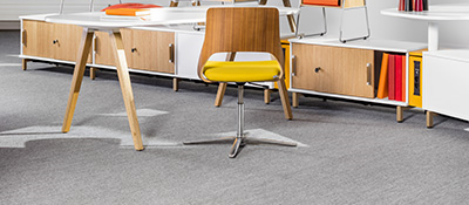July 7, 2016
Employers and staff disagree on root causes of workplace stress 0
 Seventy-five percent of US employers say workplace stress is their number one health concern, but a disconnect between employers and employees on the causes of stress could undermine efforts to address the problem. Data from Willis Towers Watson’s 2015/2016 Global Staying@Work Survey along with its 2015/2016 Global Benefits Attitudes Survey reveals that the top causes of stress has picked by employer tended to fall into categories of large organisational issues, such as change and ubiquitous technology connections which can make employees feel that they are always on the job. By contrast, employees pointed more directly to specific elements of their personal work experience. For example, employees ranked organisation culture — including a lack of teamwork and a tendency to avoid accountability — third on their stress list, while employers ranked it last. Conversely, employers identified insufficient work/life balance as the top stressor for workers, while employees ranked it sixth.
Seventy-five percent of US employers say workplace stress is their number one health concern, but a disconnect between employers and employees on the causes of stress could undermine efforts to address the problem. Data from Willis Towers Watson’s 2015/2016 Global Staying@Work Survey along with its 2015/2016 Global Benefits Attitudes Survey reveals that the top causes of stress has picked by employer tended to fall into categories of large organisational issues, such as change and ubiquitous technology connections which can make employees feel that they are always on the job. By contrast, employees pointed more directly to specific elements of their personal work experience. For example, employees ranked organisation culture — including a lack of teamwork and a tendency to avoid accountability — third on their stress list, while employers ranked it last. Conversely, employers identified insufficient work/life balance as the top stressor for workers, while employees ranked it sixth.







 There is no doubt that the UK’s office based knowledge industry is facing a crisis in the form of a ‘wellbeing deficit’. Both the Confederation of British Industry (CBI) and Health and Safety Executive (HSE) have reported record levels of absenteeism, with the latter attributing 23.3 million lost working days to work-related ill-health, such as depression, stress, anxiety and musculoskeletal disorders. A great deal is already known about the causes of the key issues of employee stress and demotivation, but more work needs to be done to establish how organisations can meet their corporate goals with regard to these issues, whilst still engaging, motivating and nurturing their workforce. A significant body of published research has identified that a sense of ‘personal control’ can have a hugely positive impact on employee wellbeing, but how can we engender that control when it comes to creating a productive working environment?
There is no doubt that the UK’s office based knowledge industry is facing a crisis in the form of a ‘wellbeing deficit’. Both the Confederation of British Industry (CBI) and Health and Safety Executive (HSE) have reported record levels of absenteeism, with the latter attributing 23.3 million lost working days to work-related ill-health, such as depression, stress, anxiety and musculoskeletal disorders. A great deal is already known about the causes of the key issues of employee stress and demotivation, but more work needs to be done to establish how organisations can meet their corporate goals with regard to these issues, whilst still engaging, motivating and nurturing their workforce. A significant body of published research has identified that a sense of ‘personal control’ can have a hugely positive impact on employee wellbeing, but how can we engender that control when it comes to creating a productive working environment?























July 11, 2016
Multi-tasking and workplace distractions don’t allow us to focus on the essentials
by Charles Marks • Comment, Knowledge, Workplace, Workplace design
Although the structure of our brains is largely the same as that of our hunter-gatherer prehistoric ancestors, that does not mean they are immutable. Research shows that the way our brains change in response to technology and the changing workplace suggests they are subject to a certain degree of ‘rewiring’. For example, a recent study found that the emotional response of adults to smileys in emails and texts is exactly the same as they would have to real faces. Tellingly, however, this appears to be learned behaviour because babies do not exhibit the same response. One other aspect of working life that is now proven to change the way our brains work – and not in a good way – is multitasking. Research published by Kep Kee Loh and Ryota Kanai of the University of Sussex found that “Individuals who engage in heavier media-multitasking are found to perform worse on cognitive control tasks and exhibit more socio-emotional difficulties”.
(more…)